
As part of our ongoing education for early career clinicians and researchers, fellows, trainees, registrars, nurses, and trial coordinators, in 2024 we will be focusing on “Targeting Molecular Pathways in Gynaecological Cancer”. All interested healthcare professionals are welcome to attend this free online Foundations Series in Gynaecological Cancers webinar where leading experts in the field will present on interesting and related topics. We would like to thank AstraZeneca for their generous support of this education series.
The objectives for this educational series on Targeting Molecular Pathways in Gynaecological Cancer are:
- A deep dive into current and future applications of molecular sequencing and testing.
- Learning to interpret molecular reporting and how can it be used to assist in guiding therapy choice.
- Discussing case studies to learn some of the rationale to offering certain trials/therapies to patients.
- Learning how to tie pre-clinical and clinical aspects of gynae cancer together.
Gynaecological Cancers 2024 – Program
Meet the co-chairs of the 2024 series
Associate Professor Kylie Gorringe and Associate Professor Yoland Antill will co-chair the 2024 Series.
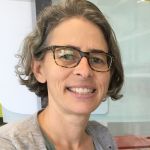
“Cancer treatments are increasingly becoming targeted to specific molecular vulnerabilities, and are often only available to patients who have had their tumour tested for relevant pathway alterations. With more and more targeted therapies coming through the pipeline, it is essential that all oncologists and scientists have a strong foundation in molecular pathways and testing. The pace at which this field is advancing means that even recently trained clinicians need continued education to stay up to date.”
– A/Prof Kylie Gorringe, Co-Chair, Foundations Series 2024
A/Prof Kylie Gorringe is the Group Leader and Program Head, Cancer Evolution and Metastasis Program, Peter MacCallum Cancer Centre. She is a scientist from New Zealand who obtained a PhD from Cambridge University (UK). This was followed by post-doctoral positions at Peter MacCallum Cancer Centre and James Cook University before returning to the Peter Mac where she became a Group Leader in 2016.
A/Prof Gorringe’s group uses genomics and functional approaches to address clinical questions in breast and ovarian cancer. A key interest is mucinous ovarian cancer, funded by grants from NHMRC and the US Dept of Defense.

“The molecular assessment of tumours is taking cancer care in new directions. In order to bring maximum efficacy and strategy around such testing, educating our clinicians is paramount. This series will be both a provision of scientific rationale, the practicalities of testing, where we are heading in the future, and how to maximise opportunity through new research and trial design- all brought together with case studies.”
– A/Prof Yoland Antill, Co-Chair, Foundations Series 2024
Associate Professor Yoland Antill is a Medical Oncologist and Cancer Genetics specialist based at Cabrini Health, Frankston Hospital and Royal Melbourne Hospital in Victoria. She holds an adjunct clinical position in the Faculty of Medicine, Dentistry and Health Sciences at Monash University. While trained at the University of Newcastle and Royal North Shore in Sydney, NSW, she now calls Melbourne home.
A/Prof Antill’s working and research interests are in the management of Gynaecological and Breast cancers together with Hereditary Cancer Syndromes. She is the current Deputy Chair of ANZGOG Research Advisory Committee, Past Chair of the ANZGOG Uterine Tumour Working Group and a member of ANZGOG’s EDEN Steering Committee. She also is a member of Australia’s Breast Cancer Trials Group, the Medical Oncology Group of Australia and the American Society of Clinical Oncology.
A/Prof Antill has published widely in the areas of hereditary cancer risk breast and gynaecological cancers and is regularly invited to speak at national and international meetings. She is the lead investigator for a number of local and international research studies and is involved in the development and conduct of clinical and supportive care trials. A/Prof Antill has more than 20 years’ experience in both medical oncology and in the diagnosis and management of hereditary cancer syndromes.
When?
Wednesday 31 July | 1pm – 4.00pm AEST
Tuesday 6 August | 1pm – 4.00pm AEST
Who is this event for?
Early Career Researchers and Clinicians including Fellows, Registrars & Trainees, clinicians in Regional /Rural Practices; Gynaecological Oncology Clinical Nurse Specialists & Study Coordinators. However, all interested healthcare professionals are invited to attend.
How to register?
The Foundation Series in Gynaecological Cancers 2024 will be recorded and only available to those who register.
Any questions?
Please contact Heshani Nesfield, heshani.nesfield@anzgog.org.au.
Speakers
Prof David Thomas
Prof David Thomas is the inaugural Director of the Centre for Molecular Oncology at the University of New South Wales, and Head of the Genomic Cancer Medicine Laboratory at the Garvan Institute of Medical Research. As a clinician-scientist, his focus is on the application of genomic technologies to the understanding and management of cancer, particularly sarcoma. He established the not-for-profit company, Australian Genomic Cancer Medicine Centre, trading as Omico, to lead a national precision medicine program for patients with rare and early onset cancers. He has over 200 research publications, including lead or senior author papers in Science, Cancer Cell, Journal of Clinical Investigation and Lancet Oncology.
 Dr Janine Lombard
Dr Janine Lombard
Dr Janine Lombard has been conducting breast and gynaecological research in the Medical Oncology Research Department at Calvary Mater Newcastle since 2006. Her main interest is breast and gynaecological cancers and measures to improve both outcomes but also reduce the toxicities of treatments for these diseases. Dr Lombard is involved in basic translation research through links with researchers at HMRI and the University of Newcastle in breast and ovarian cancer. She has also been involved in several important trials in early and advanced breast cancer treatments, some of which have significantly changed clinical practice. Her involvement in the POEMS study helped to establish the use of a drug to protect fertility and prevent early menopause symptoms in women with estrogen negative early breast cancer.
Dr Lombard is currently a local principal investigator for several studies exploring new treatment options in relapsed (metastatic) breast cancer, ovarian and endometrial cancer. In gynaecological cancer she is principal investigator for a number of Australian and international studies of new treatments in ovarian cancer. She is an active member of ANZGOG and the Chair Elect of the Uterine Tumour Working Group. In early drug research she is principal investigator for a phase 1B study exploring new drug compounds in several tumour subtypes.
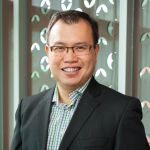 A/Prof Jeffrey Goh
A/Prof Jeffrey Goh
Associate Prof Jeffrey Goh is an experienced medical oncologist and Adjunct Professor at Queensland University of Technology (QUT). He consults and treats patients at Icon Cancer Centre Chermside and Icon Cancer Centre Greenslopes. A/Prof Goh maintains a significant part-time role as senior staff specialist at Royal Brisbane & Women’s Hospital (RBWH). He sits on the ANZGOG Research Advisory Committee and is the past Chair of ANZGOG’s Cervical Cancer Tumour Working Group and a past Board Director. He is co-supervisor of PhD candidates at the University of Queensland and was previously a senior lecturer. A/Prof Goh is also involved with mentoring advanced trainee registrars in medical oncology at RBWH. Additionally, A/Prof Goh is a member of Icon’s Research Committee and Medical Advisory Committee (MAC). His past clinical experience covers a broad range of solid tumour malignancies, however, he has a special clinical and research interest in gynaecological and genitourinary malignancies (which he focuses on), in addition to phase I/Ib clinical trials.
 Prof Paul Cohen
Prof Paul Cohen
Paul Cohen is a consultant at the Western Australian Gynaecological Cancer Service, King Edward Memorial Hospital in Perth, Clinical Professor in the Division of Obstetrics and Gynaecology, Medical School, University of Western Australia, and Adjunct Professor at the Institute for Health Research, University of Notre Dame Australia. Paul’s research interests include patient-reported outcomes and the supportive care of patients affected by gynaecological malignancies, gynaecological cancer genetics, the epidemiology of gynaecological malignancies, and biomarkers to predict histological tumour regression in women with high-grade serous tubo-ovarian cancer following neoadjuvant chemotherapy.
Paul is the current chair of the International Gynecological Cancer Society (IGCS) Education Committee, and ANZGOG Research Advisory Committee, past program chair of the ANZGOG Annual Scientific Meeting, and a Board Director of ANZGOG and the IGCS. Paul is a member of the eviQ Cancer Genetics Reference Committee, Australian Clinical Trial Alliance Impact and Implementation Committee, and a member of the Editorial Board of the International Journal of Gynecological Cancer.
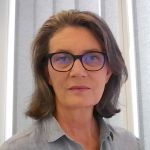 Clinical Prof Rosemary Balleine
Clinical Prof Rosemary Balleine
Clinical Prof Rosemary Balleine MBBS PhD FRCPA is a Research Pathologist and Principal Research Scientist – Molecular Pathology at the Westmead Institute for Medical Research in Sydney. She has a long-standing interest in tissue-based translational cancer research, particularly focussed on molecular profiling of cancer tissues to predict response to targeted therapies. Rosemary is a co-Investigator on the INOVATe study which is a precision oncology program for ovarian cancer that has recruited over 800 women in NSW since 2016.
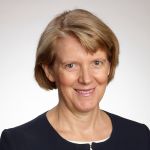 Prof Clare Scott AM
Prof Clare Scott AM
Prof Clare Scott is a Consultant Medical Oncologist at the Peter MacCallum Cancer Centre and the Royal Melbourne and Royal Women’s Hospitals and is Head of the Ovarian and Rare Cancers Laboratory at the Walter and Eliza Hall Institute of Medical Research. She has 20 years’ experience in treating breast and ovarian cancer and in clinical cancer genetics in Familial Cancer Clinics. Clare has been Principal Investigator for more than ten ovarian cancer clinical trials of targeted therapy leading to high impact publications and is immediate past Chair of the ANZGOG OASIS Initiative Steering Committee. In the lab, Clare has developed new ovarian cancer pre-clinical models and is using genomics to study targeted drug combinations to combat drug resistance. Clare has established a rare cancer research program to improve access to targeted treatments for patients diagnosed with a rare cancer. Clare was awarded the Sir Edward Dunlop Cancer Research Fellowship from Cancer Council Victoria (2012) and a Clinical Research Fellowship from the Victorian Cancer Agency (2018).
 Prof Chee Khoon Lee
Prof Chee Khoon Lee
Prof Chee Khoon Lee is a consultant medical oncologist with broad ranging clinical and research interests with a subspeciality focus on thoracic and gynaecological malignancies. He is a Senior Staff Specialist and Director of the Medical Oncology Clinical Research Unit at St George Hospital. He is Professor of Oncology and Oncology Clinical Lead at the National Health & Medical Research Council Clinical Trials Centre of The University of Sydney. He serves as study chair/co-chair of 7 collaborative group trials testing novel therapies and treatment strategies in thoracic and gynaecological malignancies. He is a recipient of the NHMRC Investigator Grant (Leadership 1 – 2022-2026) with research focus on better strategies to personalise treatment to improve outcomes in lung and gynaecological cancers.
A/Prof Mandy Ballinger 
Associate Prof Mandy Ballinger is Deputy Director of the UNSW Centre for Molecular Oncology, Leader of the Genetic Cancer Risk Group at the Garvan Institute of Medical Research and Head of Cohorts for the Australian Genomic Cancer Medicine Centre (Omico). Her clinical training includes a Masters in Genetic Counselling. A/Prof Ballinger’s research focus is to define heritable cancer risk and inform future clinical risk management through large patient cohort studies A/Prof Ballinger has overseen patient recruitment to the Molecular Screening and Therapeutics study and the Cancer Screening Program, facilitating tumour comprehensive genomic profiling for >30,000 Australian cancer patients and is a member of the Omico Molecular Oncology Board . Her work has been internationally recognised with the 2023 Liddy Shriver Career Research Award. A/Prof Ballinger’s goal is to utilize these large research cohorts as vehicles for intervention to change practice and improve outcomes for patients and families.
Nicholas Clark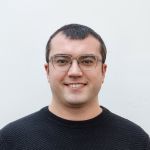
Nicholas Clark graduated with a Bachelor of Biomedical Science from Deakin University before becoming a Medical Scientist in the Thalassaemia and Haemophilia Molecular Reference Laboratory at Monash Health in 2014. During his career, he has gained the Membership of the Human Genetics Society of Australasia (MHGSA) qualification, completed the Melbourne Genomics somatic variant curation training program, and presented lectures as part of a RCPA genomics symposium on molecular techniques and the genetics of alpha thalassaemia. In 2022, Nicholas became a Medical Analyst in the Cancer Predisposition team at the Peter MacCallum Cancer Centre.
Rose Hood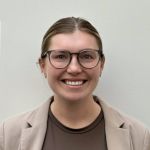
Rose Hood is a medical scientist within the Pathology Department Molecular Oncology team at the Peter MacCallum Cancer Centre. She has graduated with a master’s degree in Genome Analytics from Monash University. Her current role includes analysis and curation of solid oncology molecular data for personalised medicine and diagnostic utility, which includes HRD/BRCA tumour testing in ovarian cancer. She has a background in patient facing healthcare and is now passionate about advancing healthcare through genomics.
Dr Yeh Chen Lee 
Dr Yeh Chen Lee is a clinical investigator and medical oncologist with expertise in gynaecological cancers and soft tissue sarcoma. Dr Lee is a Staff Specialist at the Prince of Wales – Royal Hospital for Women with a conjoint affiliation with the University of New South Wales, and a Research Fellow at the NHMRC Clinical Trials Centre, University of Sydney.
Dr Lee’s research focus is to improve patient care through advancing and translating knowledge in cancer genetics, drug development, and supportive care. Her research leadership includes being the appointed chair of the NGOR rare ovarian tumour group, a member of the Research Advisory Committee and Ovarian Tumour Working Group for ANZGOG, a Scientific Advisory Committee member of the ANZSA, and a member of the Gynaecological Cancer and Sarcoma Reference Committee for EviQ Cancer Treatment Online. Dr Lee is highly active in cancer clinical trials and is involved in the conduct of over 50 Phase I-III investigator-initiated and collaborative trials over time.
A/Prof Oliver Klein 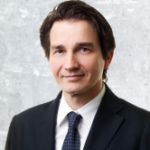
A/Prof Oliver Klein is a medical oncologist and clinical scientist at the Olivia Newtown-John Cancer Research Institute with a longstanding interest/expertise in both laboratory and clinical cancer immunology. He has worked for twenty years in the field of cancer immunotherapy, initially conducting cancer vaccine research and subsequently participating in the first clinical trials using anti-CTLA-4 and anti-PD-1 antibodies in patients with advanced melanoma. Dr Klein is the Immuno-oncology lead at the Olivia Newton-John Cancer Centre where he is the lead investigator on several immunotherapy trials and participates on translational research that focuses on identifying biological correlates of response to immunotherapy using checkpoint blockade. He has a particular interest in the treatment of cutaneous malignancies and rare cancers and pioneered clinical trials using nivolumab and ipilimumab combination immunotherapy in patients with rare cancers, including gynecological malignancies.
Dr Kristina Warton 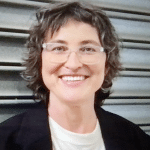
Dr Kristina Warton leads the Ovarian Cancer Early Diagnosis Project within the Gynaecological Cancer Research Group at the University of New South Wales in Sydney, Australia. Dr Warton’s research interest is in developing DNA methylation changes in circulating DNA into diagnostic tests for early-stage ovarian cancer. She also has a research focus on maximising the sensitivity of cell-free DNA assays and minimising cell-free DNA artefacts, both biological and technical. Together with Dr Goli Samimi, Dr Warton co-edited the “Cell-free Circulating DNA: Purification and analysis techniques” book.






